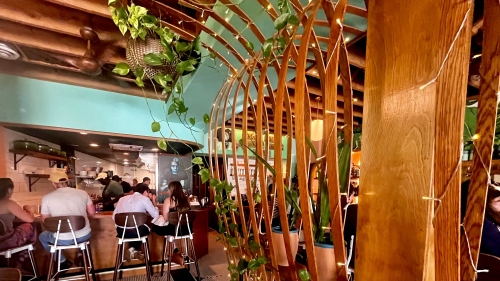By all accounts, Sid Korn should be dead. First came encephalitic polio as a baby growing up in New York. Next, binge drinking, a mood-altering habit acquired in college to beat loneliness, became routine as an adult for decades. Then came not one, but two cancer scares that left doctors scratching their heads, wondering how in the world he pulled through.
This April he will celebrate his 80th birthday.
Korn, who lives in Madison with his family, shares his health-life journey with anyone who is willing to listen. A participant in the historic All of Us Research Program-UW + an active member of its local community advisory board, Korn is fervently devoted to leaving the world better than he found it. One way is by recruiting others to join All of Us.
“After multiple catastrophes and a few near-death experiences, I’m still here,” said Korn, a father of two and six grandchildren. “And I have no cancer. I was drawn to the All of Us Research Program because of the goal to include a diverse population in biomedical research. I crave diversity, especially when it comes to fixing health disparities.”
A newlywed in the early 1970s, Korn recalls how he underwent a routine chest x-ray because his breasts were swollen. Turns out the mediastinum, the space in his chest, was filled with tumors. A surgery procedure missed some malign mass hidden behind his heart, so he went back under the knife two years later for what turned out to be a rare form of thymic hyperplasia.
A year or two into his 60s, Korn said his body was out of whack. Fatigue consumed him followed by the need for home nursing care. The cantaloupe-size tumor near his spleen was found to be diffuse large B-cell lymphoma.
“This kills 100% of those diagnosed with the disease in a month or two without treatment,” Korn said. “Luckily, I made it to the UW Carbone Center. My doctor later told me later that I only had two to three days to live. My doctor resurrected me through chemo.”
Korn, a retired fishery biologist for the U.S. Fish and Wildlife Service and the National Marine Fisheries Service, often traveled worldwide waterways testing the effects of pollution in fish + other pesticides.
Born to a Jewish family a year before the Holocaust ended, believes he’s cheated death to educate and encourage others to make health a priority.
“I believe I was put on this Earth to help people with various conditions,” Korn said. “I’ve experienced alcoholism, encephalitic polio, cancer, bipolar, and I’m on the high-functioning autism spectrum. So, I know I can be a service to the human race.”
Many groups have been left out of health research in the past. Madisonians can help change that. Researchers need information from large numbers of people who reflect the diversity of the US. The goal is to reach more than a million people from all backgrounds.
Interested in participating in the All of Us Research Program? Learn more online or call (608) 263-3683.
Poll
Have you heard of the All of Us Research Program? We’re curious.













